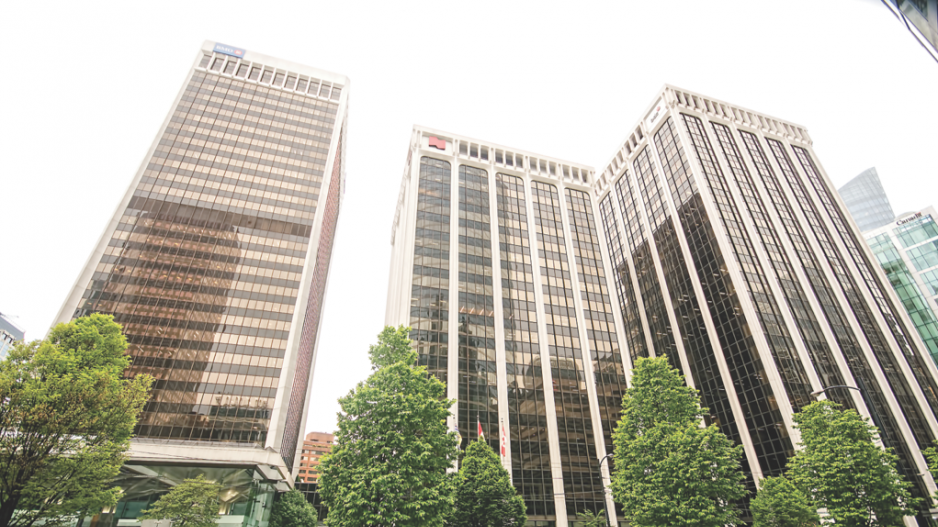After the former chairman of Chinese insurance giant Anbang Insurance Group was sentenced to 18 months in prison earlier this month, attention has turned to how the company’s overseas assets – including some high-profile properties in B.C. – will be managed.
And recent reports from Asia appear to indicate some minor movements that might hint at Beijing’s direction in dealing with Anbang’s assets through the state’s Insurance Regulatory Commission, which took control of the company in February.
Beijing’s Sino-Ocean Group Holding – one of China’s largest state-owned real estate companies – said in mid-May in a filing with the Hong Kong Stock Exchange that the company has entered into a joint venture with Anbang’s management to give Sino-Ocean control over some of Anbang’s domestic Chinese assets. The assets affected by the joint venture are involved not only in Anbang’s home turf of insurance but also in real estate, investment, pensions and finance sectors. Specific projects were not named in the filing.
“[The joint venture agreement] is a concrete measure of co-operation between both parties … which can deepen the co-operation between the [Sino-Ocean] Group and Anbang by leveraging the real estate resources of Anbang,” Sino-Ocean officials said in the filing.
The statement added that Sino-Ocean will provide “development and management services” to “effectively enhance the sustainability and competitiveness” of the overall business.
Bloomberg has reported that Sino-Ocean executives will manage the assets with the goal of possibly disposing of some of Anbang’s Chinese commercial and residential properties.
“The deal appears to set the stage for Sino-Ocean, which is 29.7% owned by Anbang, to take over at least some of Anbang’s real estate holdings and its development activities,” Bloomberg said as reported by Asia real estate intelligence publication Mingtiandi.
A separate report from the insurance journal said Anbang officials are now reviewing all overseas assets with the help of investment banks for possible divestments – a change from earlier Anbang reports that it was planning no such move.
Anbang’s most notable assets in B.C. and Canada include the Bentall Centre office complex in Vancouver, hotel owner InnVest Real Estate Investment Trust and Retirement Concepts – B.C.’s largest owner of retirement homes. Reports estimated Anbang’s total asset value in 2015, after years of aggressive acquisitions that included New York’s Waldorf Astoria hotel, at US$123 billion.
Observers were originally concerned that Beijing would manage Anbang assets through bureaucratic agencies rather than find corporate partners to help in the process. Yves Tiberghien, director emeritus of the University of British Columbia’s Institute of Asian Research, said earlier that the company – one of the largest private insurers in China, with 30,000 employees and 30 million clients – was “too big to fail” for the Chinese economy, and Beijing has to maximize the returns on assets skilfully to avoid destabilizing China’s domestic market.
In April, Beijing announced a $12.2 billion bailout package for Anbang after former chairman Wu Xiaohui admitted to fundraising fraud and embezzlement of around US$10 billion.
“There is, as far as I know, no precedent of a global-scale, national-level private company being taken over by the state.… The closest equivalent is AIG [American International Group] during the U.S. financial crisis,” Tiberghien said of the Anbang case. “It’s too big to fail, and it’s interconnected with everything.”
He noted that there was a smaller-scale precedent within China, when now-disgraced Chinese politician Bo Xilai executed the “Chongqing model” of development in the southwestern Chinese city in the late 2000s. In that case, an increase in state control and some confiscating of private companies fed the rapid economic growth of Chongqing, where nominal GDP growth hit 16.4% in 2011.
“Chongqing, to this day, is the No. 1 growth market in China,” Tiberghien said. “It’s growing at 13% a year for the last nine years, even after Bo Xilai. The city has some of the country’s newest airport and transportation infrastructure, so we know what they did with the money there.… But that’s a smaller scale, and I don’t think they can do it with Anbang.”
Andreas Schotter, professor of international business at the Ivey Business School at the University of Western Ontario, said there are other challenges in dealing with the Anbang model because it appears to be part of a trend in the last few years where some Chinese conglomerates have been willing to take a loss by buying foreign assets at high prices to get the money out of China.
As such, Schotter said, it might be hard for Beijing to get all of the original Anbang investments back. But he added that taking too strong a stance to stifle maximum return could discourage foreign business interest in the Chinese market.
“Remember, Anbang – in contrast to companies like 3G Capital from Brazil – is not in the ‘getting deep into the acquisition’s business model efficiency’ game,” Schotter said, referring to the investment firm best known for streamlining operations at Burger King after acquisition.
“Anbang did a financial-portfolio play and paid a premium for asset-diversification purposes – and not for growing profitability.… The bigger question is, how does the government want to claw back some of the massive capital flight that has happened out of China?” •




